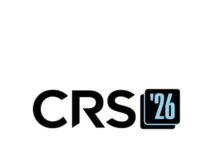
Cumulus Media has filed a sweeping federal antitrust lawsuit against The Nielsen Company, accusing the ratings giant of “coercive conduct, strong-arm negotiation tactics, and restrictive terms” that harm radio broadcasters and suffocate measurement competitors.
Filed October 16, in the US District Court for the Southern District of New York, the complaint alleges Nielsen has “flexed its monopoly power” by conditioning access to national radio ratings on mandatory purchases of local ratings data in every market where a broadcaster operates.
According to the lawsuit, the arrangement forces Cumulus to “choose between overpaying for Nielsen’s products that it does not need or want” or risking “significant losses in advertising revenue and market share,” damaging relationships with advertisers, agencies, affiliates, and partners, which it says threatens the viability of Westwood One.
At issue is Nielsen’s September 2024 “Tying Policy,” which fundamentally changed how networks with owned local stations access comprehensive ratings. Under the new rule, national radio ratings exclude any geography where a network’s local stations do not subscribe to Nielsen’s local data product.
For Cumulus, that means a single station’s decision not to purchase Nielsen data in a major market removes the entire area from Westwood One’s national ratings. The company calls this “a textbook abuse of monopoly power.”
The lawsuit claims Nielsen enforces this policy to block competition from Eastlan Ratings, the only remaining rival in certain local markets. Cumulus says Eastlan’s lower prices and methodological improvements can’t compete against Nielsen’s “gatekeeper” control of essential ratings data.
The complaint cites a July 25, 2025, call between Cumulus representatives and Nielsen Audio Managing Director Rich Tunkel. During that conversation, Tunkel allegedly admitted that a national radio ratings product without full geographic coverage “would be Swiss cheese” and “not the ‘real’ or a ‘useful’ product.” Cumulus argues that this statement confirms Nielsen’s tying arrangement.
After Cumulus sent a cease-and-desist letter on August 18, Nielsen responded on September 16 with what the complaint calls “window dressing.” Nielsen allegedly offered to sell its Nationwide product for nearly ten times the current price, “almost as high as the price Cumulus would pay under the Tying Policy,” or allow limited access to selected markets “at a price intended to disqualify itself as an option.”
“This ‘new’ proposal,” the complaint says, “was simply another attempt to strong-arm Cumulus into purchasing both the tied and tying products,” preserving the same anticompetitive effect.
Cumulus says Nielsen holds a total monopoly over national ratings and a dominant or exclusive position in 80 local markets where Cumulus operates, with 100% market share in 75 of them. That dominance, the lawsuit claims, has allowed Nielsen to impose “supracompetitive prices” disconnected from service quality or competition.
The complaint highlights a unilateral 36% price increase on national ratings data in 2022 “without negotiation or justification.” It also alleges that local ratings fees have risen in every contract cycle “regardless of market dynamics.”
“Nielsen’s ability to profitably raise prices substantially above the competitive level,” the filing states, “is direct evidence of Nielsen’s market power.”
Meanwhile, the quality of Nielsen’s service has “deteriorated, despite its price increases.” The complaint cites “over 50 notifications of service issues” this year alone, including delayed data releases, unrecorded intervals, and reissued reports.
The lawsuit also takes aim at an earlier Nielsen rule: the 2022 “Subscriber First Policy.” Under that policy, stations that don’t buy Nielsen’s local ratings are omitted entirely from summary-level data – the reports advertisers and agencies rely on.
Cumulus says it was forced to purchase data in multiple markets to keep its stations visible in those rankings. In Memphis, where Cumulus declined to subscribe due to cost, an agency “explicitly attributed its decision to stop purchasing any advertising inventory” from the company’s stations to their absence in Nielsen’s data.
The complaint argues that the practice deceives advertisers by presenting incomplete market information. “Advertisers and agencies pay for a complete view of the market, not a view concocted by Nielsen to punish local radio stations for attempting to exercise their right to choose in a free market,” it states.
Cumulus says Nielsen’s “anticompetitive conduct” has had “devastating effects” across radio advertising. Without competition, the complaint argues, Nielsen “faces diminished or no competition and is not incentivized to innovate or compete on price.”
For Westwood One, the impact could be immediate and severe. The network would lose comprehensive national ratings data beginning with Nielsen’s Spring 2026 Ratings Book, expected in August or September 2026. But the effects would begin sooner, since national advertising inventory is typically sold months, or even a year, in advance.
Without full data coverage, Cumulus warns of losing RFP opportunities, content partnerships, affiliate relationships, and key national advertisers.
Cumulus asserts six causes of action: four monopolization claims under Section 2 of the Sherman Act, a violation of California’s Unfair Competition Law, and a request for declaratory judgment. The company seeks injunctive relief, treble damages, and a jury trial.
As of publication, Nielsen has not filed a response to the complaint.









